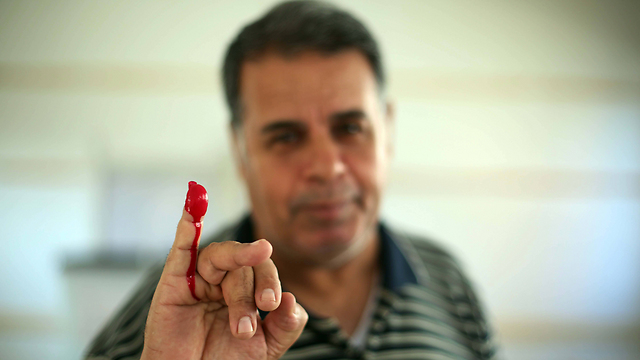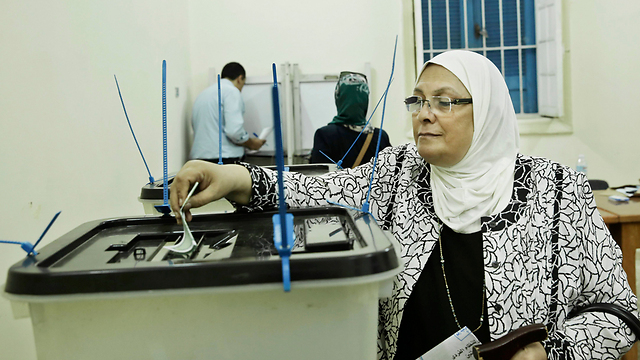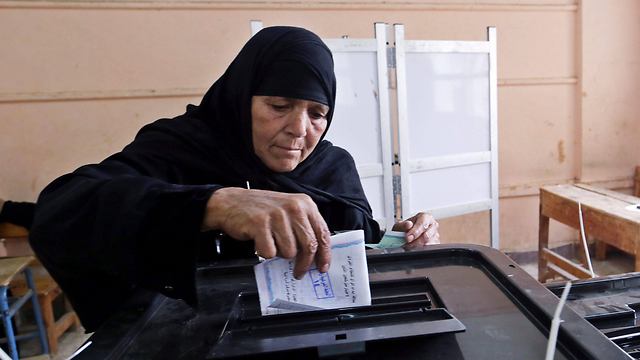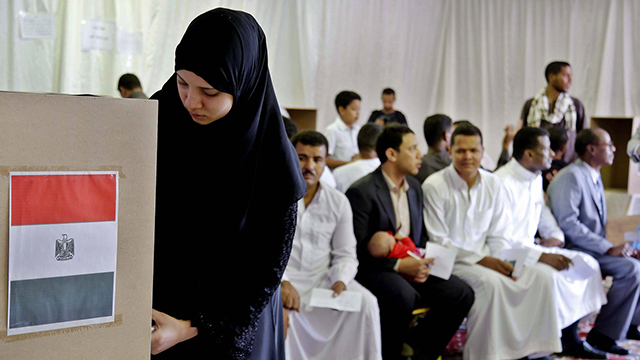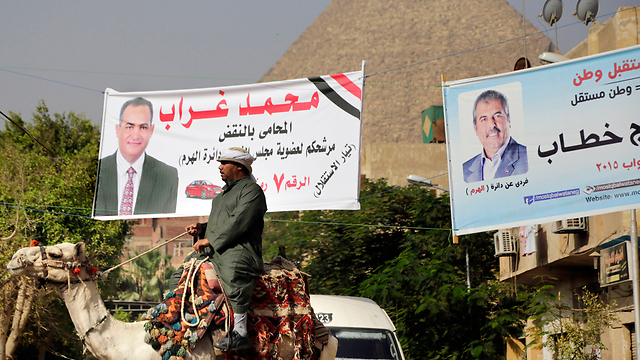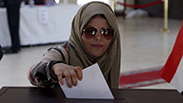
Egyptians have gone to the polls in a vote which could show whether the country’s is able to transition towards democracy. Three years after a court disbanded parliament, the north African state will finally elect lawmakers who under the new constitution have the power to hold the president to account.
The test will be how willing and how able the members of parliament (MPs) are to stand up to the general-turned-president who has been criticized for his perceived authoritarianism, say analyst here.
President Abdel Fatteh Al-Sisi was voted into power in the summer of 2014, months after he led a coup which removed the country’s first ever democratically elected leader, Mohamed Morsi. Weeks of street protests against the policies of the Muslim Brotherhood-backed president prompted the army to step in and arrest Morsi. Subsequently, Sisi was elected on a mandate to bring stability to Egypt, whose population had grown weary of the ups and downs of the Arab Spring, and to transition the country towards democracy.
But the question remains how meaningful is an election held in the country while the Muslim Brotherhood, the only party to ever have a leader elected by popular mandate in Egypt, languishes as a banned terrorist organization, and are not able to field candidates for office.
“The unprecedented restrictions reduce these elections to being a sheer gesture,” Lina Attalah, chief editor of the independent Egyptian news site Mada Masr, told The Media Line. Increasingly, she said, the actions of the government appear to be worse than those of Hosni Mubarak – who ruled Egypt for thirty years prior to Morsi being elected.
Following Sisi’s coup hundreds of Egyptian were killed and thousands arrested. Courts in the country have been repeatedly criticized for acting under the orders of the president and for arbitrary use of the death penalty. Media freedoms have also been heavily curtailed during Sisi’s rein.
Activists hope that the elections will mark a beginning of an end to such practices. Voting is due to take place in two stages -- the first conducted this week and the second round due in December.
“According to the constitution the parliament has the power – but the president also has. So there is a balance,” Ibrahim Awad, a professor at the American University of Cairo and director of the Center for Migration and Refugees Studies, told The Media Line. If parliament is unwilling to exercise this power and simply supports the government, its relevance as a democratic institution will be limited, Awad said.
Egypt created a robust constitution with a strong parliament, one which was understood and widely supported by the population, an observer with a European political organization based in Cairo who asked not to be identified, told The Media Line. However almost as soon as the constitution was ratified, it was ignored by the government, the source said.
“This parliament can do a lot of things, up to the point where it can get rid of the president itself. (However) will the Parliament be strong enough to do this - that is a separate question,” the observer asked.
Media outlets based in Cairo have reported low election turnout, possibly as little as 10%, which contrasts sharply with the attitude of Egyptian youth during the early years of the Arab Spring in 2011 and 2012. At that time, images of student protests in Tahrir Square and long lines outside voting stations were seen as symbolic of the drive towards democracy in the Middle East.
A low turnout now could be a sign of the president’s slipping popularity. Mounting casualties among police and army units engaged in a counter-insurgency campaign in the Sinai Peninsula have cost Sisi politically. In Egypt there is a belief in a connection between military rule and stability, an idea that is encouraged through Sisi’s rhetoric, journalist Lina Attalah explained.
Continued instability in the Sinai undermines the president’s image and could be one explanation for low turnout at the polls.
A second possibility is apathy among an electorate who see little choice among the candidates put forward for election. With the Muslim Brotherhood banned, there is little political opposition to Sisi.
“Democracy is about how different points of view can be reconciled,” Ibrahim Awad observed. If the government intends for democracy to truly develop in the country then the structure of its political system will allow a legitimate opposition to develop, the professor said. “(It) should allow these alternative ideas to crystalize and then you can speak of democracy. Until now this has not been the case,” Awad said.
For this reason the next six months will show if the government is committed to democratic transition, Awad explained.
“Certainly under Mubarak you had a rubber stamp parliament,” he said. “In reality and under the constitution the parliament (then) had less power, so if the (new) parliament exercises the rights and functions that are reserved to it in the constitution it will be democratic.”
Article written by Robert Swift
Reprinted with permission from The Media Line













